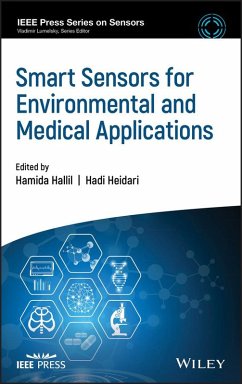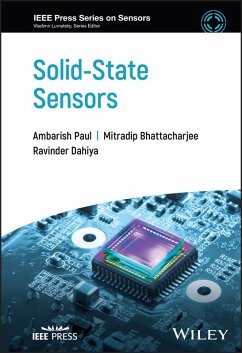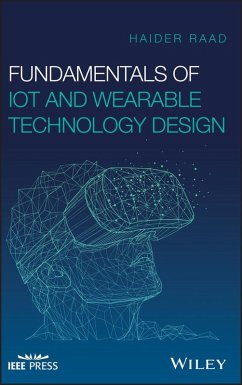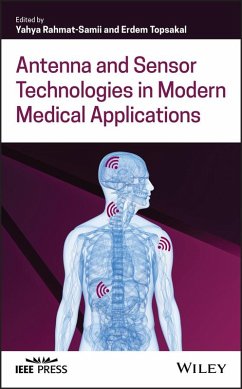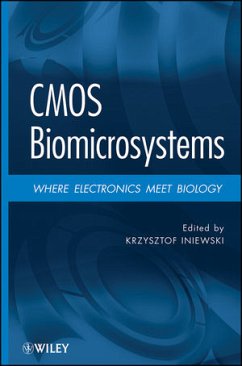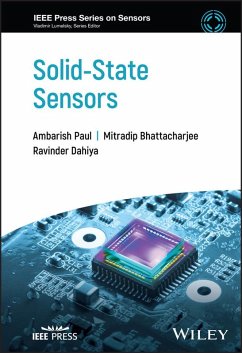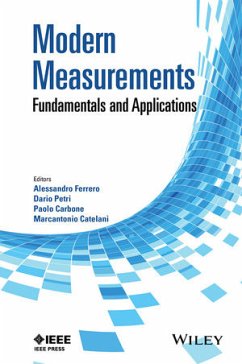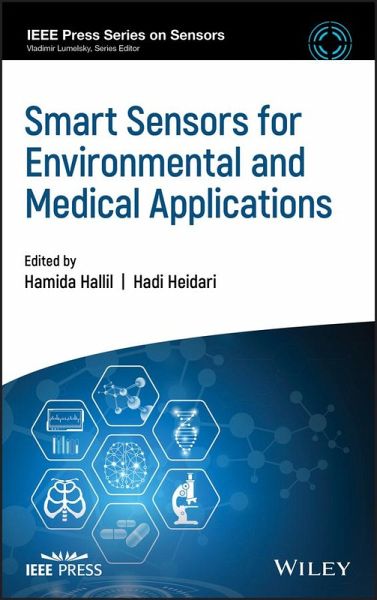
Smart Sensors for Environmental and Medical Applications (eBook, PDF)
Versandkostenfrei!
Sofort per Download lieferbar
113,99 €
inkl. MwSt.
Weitere Ausgaben:

PAYBACK Punkte
0 °P sammeln!
Provides an introduction to the topic of smart chemical sensors, along with an overview of the state of the art based on potential applications This book presents a comprehensive overview of chemical sensors, ranging from the choice of material to sensor validation, modeling, simulation, and manufacturing. It discusses the process of data collection by intelligent techniques such as deep learning, multivariate analysis, and others. It also incorporates different types of smart chemical sensors and discusses each under a common set of sub-sections so that readers can fully understand the advant...
Provides an introduction to the topic of smart chemical sensors, along with an overview of the state of the art based on potential applications This book presents a comprehensive overview of chemical sensors, ranging from the choice of material to sensor validation, modeling, simulation, and manufacturing. It discusses the process of data collection by intelligent techniques such as deep learning, multivariate analysis, and others. It also incorporates different types of smart chemical sensors and discusses each under a common set of sub-sections so that readers can fully understand the advantages and disadvantages of the relevant transducers--depending on the design, transduction mode, and final applications. Smart Sensors for Environmental and Medical Applications covers all major aspects of the field of smart chemical sensors, including working principle and related theory, sensor materials, classification of respective transducer type, relevant fabrication processes, methods for data analysis, and suitable applications. Chapters address field effect transistors technologies for biological and chemical sensors, mammalian cell-based electrochemical sensors for label-free monitoring of analytes, electronic tongues, chemical sensors based on metal oxides, metal oxide (MOX) gas sensor electronic interfaces, and more. Addressing the limitations and challenges in obtaining state-of-the-art smart biochemical sensors, this book: * Balances the fundamentals of sensor design, fabrication, characterization, and analysis with advanced methods * Categorizes sensors into sub-types and describes their working, focusing on prominent applications * Describes instrumentation and IoT networking methods of chemical transducers that can be used for inexpensive, accurate detection in commercialized smart chemical sensors * Covers monitoring of food spoilage using polydiacetylene- and liposome-based sensors; smart and intelligent E-nose for sensitive and selective chemical sensing applications; odor sensing system; and microwave chemical sensors Smart Sensors for Environmental and Medical Applications is an important book for senior-level undergraduate and graduate students learning about this high-performance technology and its many applications. It will also inform practitioners and researchers involved in the creation and use of smart sensors.
Dieser Download kann aus rechtlichen Gründen nur mit Rechnungsadresse in A, B, BG, CY, CZ, D, DK, EW, E, FIN, F, GR, HR, H, IRL, I, LT, L, LR, M, NL, PL, P, R, S, SLO, SK ausgeliefert werden.





